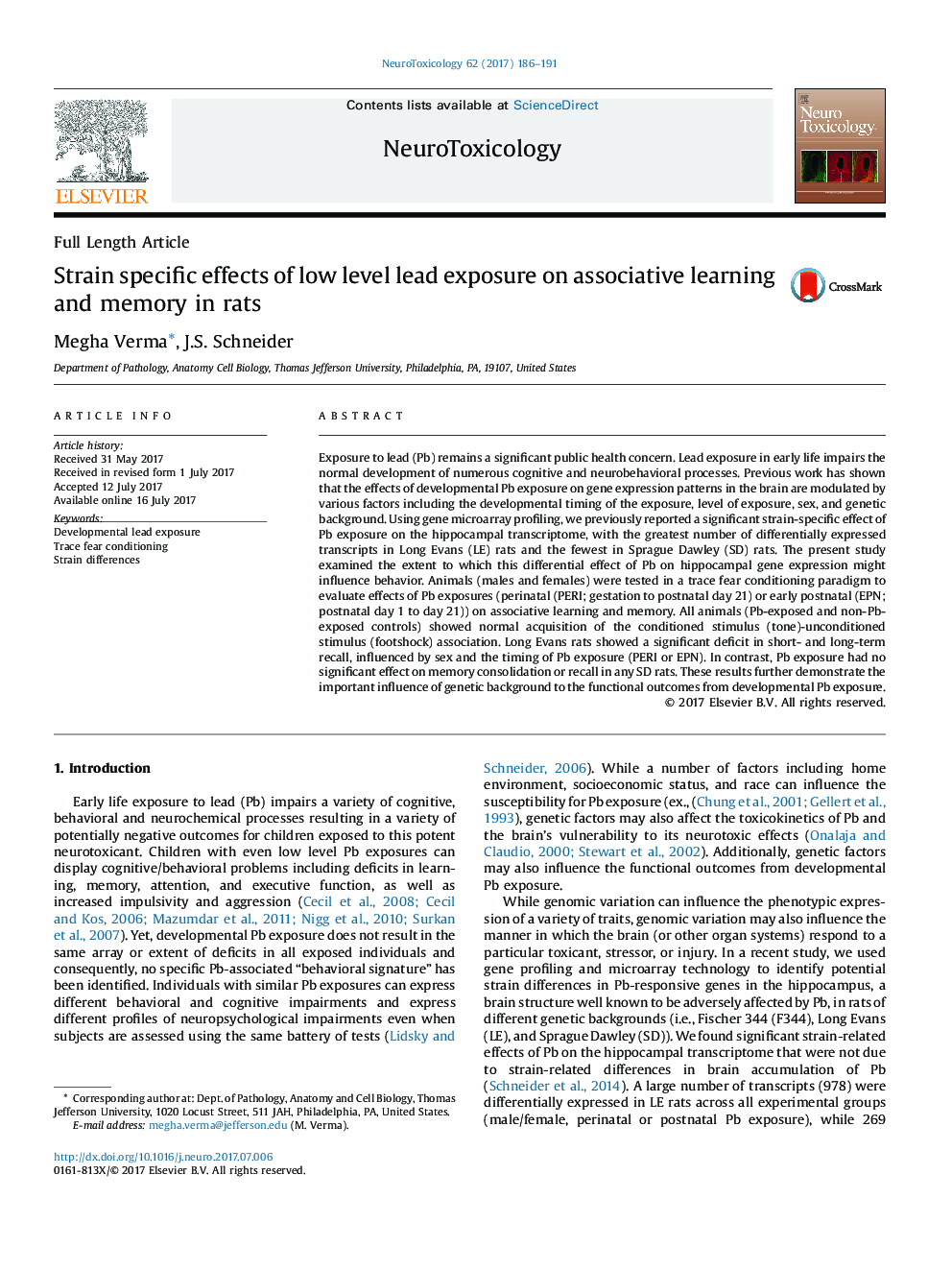| Article ID | Journal | Published Year | Pages | File Type |
|---|---|---|---|---|
| 5560802 | NeuroToxicology | 2017 | 6 Pages |
Abstract
Exposure to lead (Pb) remains a significant public health concern. Lead exposure in early life impairs the normal development of numerous cognitive and neurobehavioral processes. Previous work has shown that the effects of developmental Pb exposure on gene expression patterns in the brain are modulated by various factors including the developmental timing of the exposure, level of exposure, sex, and genetic background. Using gene microarray profiling, we previously reported a significant strain-specific effect of Pb exposure on the hippocampal transcriptome, with the greatest number of differentially expressed transcripts in Long Evans (LE) rats and the fewest in Sprague Dawley (SD) rats. The present study examined the extent to which this differential effect of Pb on hippocampal gene expression might influence behavior. Animals (males and females) were tested in a trace fear conditioning paradigm to evaluate effects of Pb exposures (perinatal (PERI; gestation to postnatal day 21) or early postnatal (EPN; postnatal day 1 to day 21)) on associative learning and memory. All animals (Pb-exposed and non-Pb-exposed controls) showed normal acquisition of the conditioned stimulus (tone)-unconditioned stimulus (footshock) association. Long Evans rats showed a significant deficit in short- and long-term recall, influenced by sex and the timing of Pb exposure (PERI or EPN). In contrast, Pb exposure had no significant effect on memory consolidation or recall in any SD rats. These results further demonstrate the important influence of genetic background to the functional outcomes from developmental Pb exposure.
Related Topics
Life Sciences
Environmental Science
Health, Toxicology and Mutagenesis
Authors
Megha Verma, J.S. Schneider,
